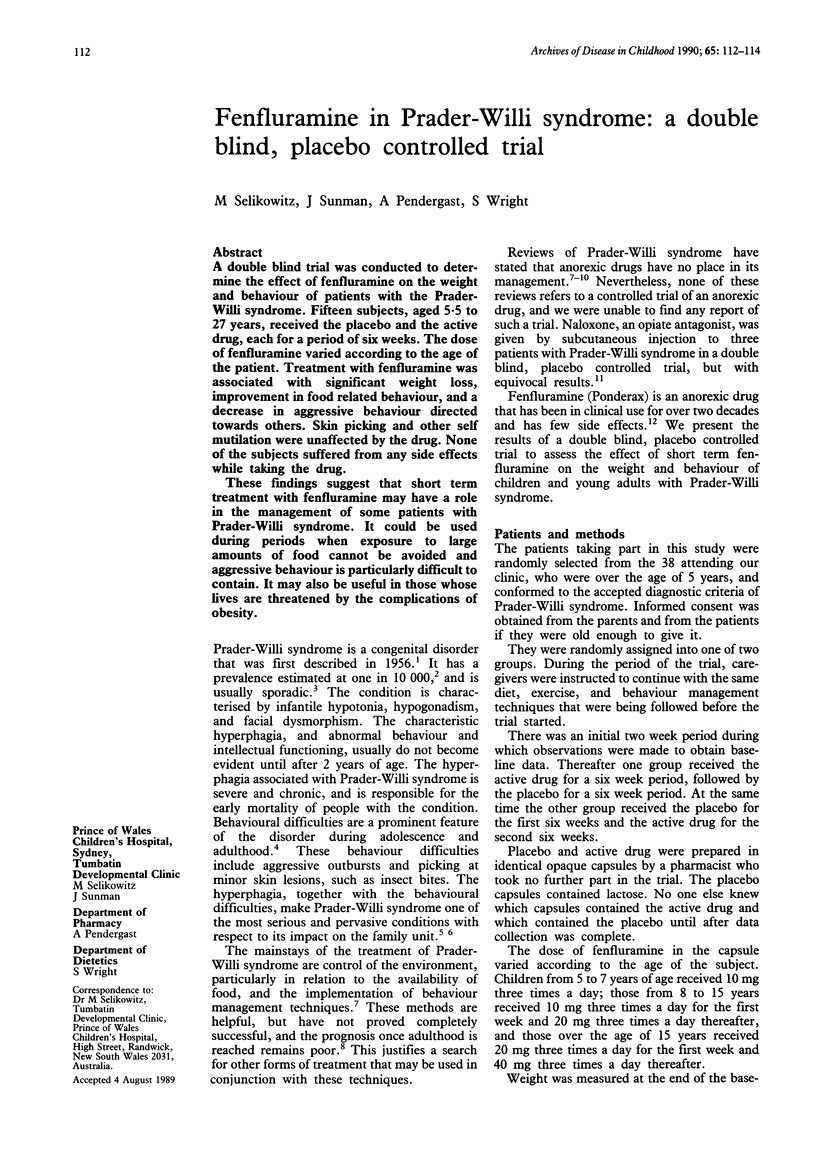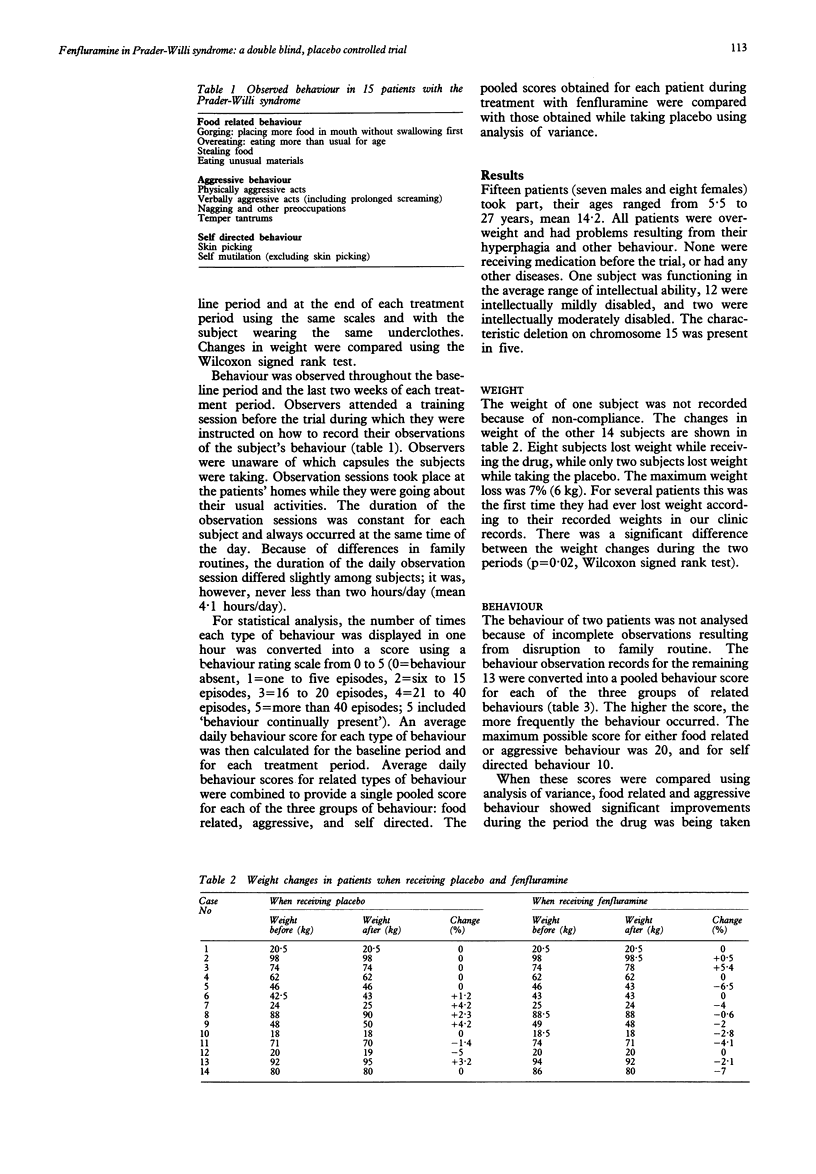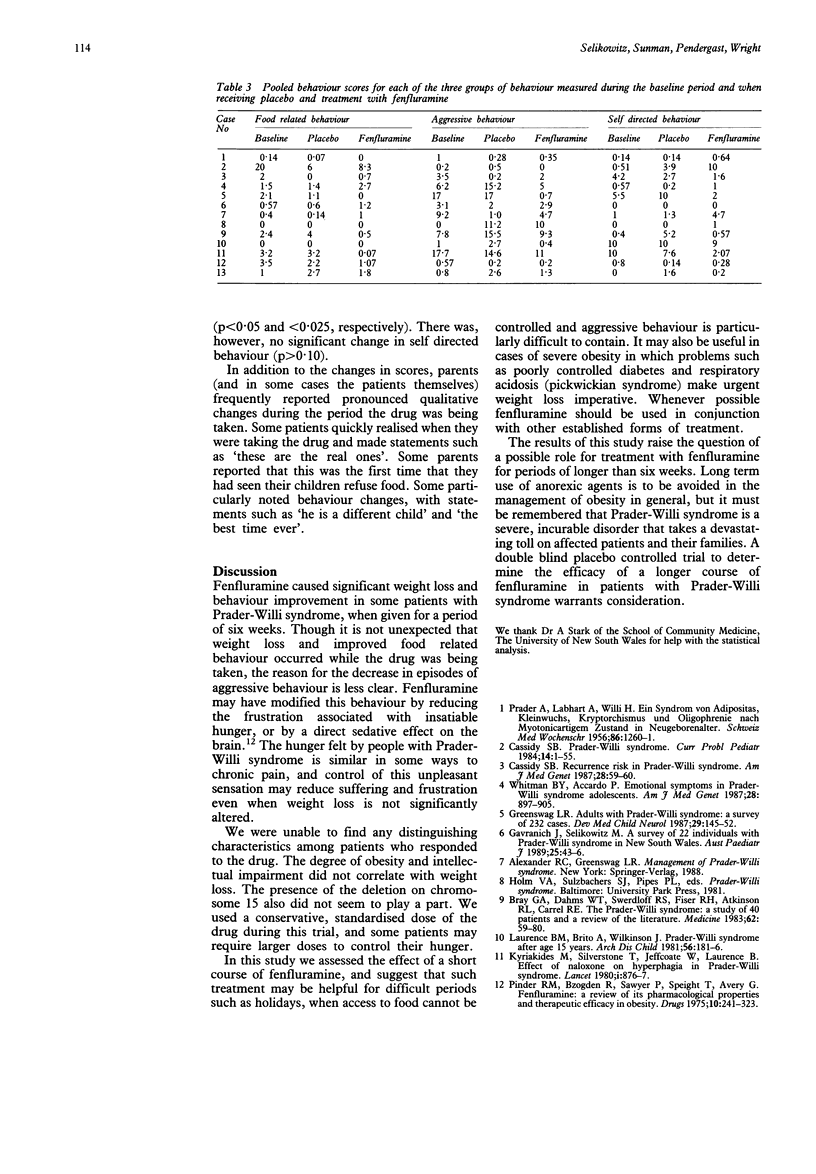Abstract
A double blind trial was conducted to determine the effect of fenfluramine on the weight and behaviour of patients with the Prader-Willi syndrome. Fifteen subjects, aged 5.5 to 27 years, received the placebo and the active drug, each for a period of six weeks. The dose of fenfluramine varied according to the age of the patient. Treatment with fenfluramine was associated with significant weight loss, improvement in food related behaviour, and a decrease in aggressive behaviour directed towards others. Skin picking and other self mutilation were unaffected by the drug. None of the subjects suffered from any side effects while taking the drug. These findings suggest that short term treatment with fenfluramine may have a role in the management of some patients with Prader-Willi syndrome. It could be used during periods when exposure to large amounts of food cannot be avoided and aggressive behaviour is particularly difficult to contain. It may also be useful in those whose lives are threatened by the complications of obesity.
Full text
PDF


Selected References
These references are in PubMed. This may not be the complete list of references from this article.
- Bray G. A., Dahms W. T., Swerdloff R. S., Fiser R. H., Atkinson R. L., Carrel R. E. The Prader-Willi syndrome: a study of 40 patients and a review of the literature. Medicine (Baltimore) 1983 Mar;62(2):59–80. [PubMed] [Google Scholar]
- Cassidy S. B. Prader-Willi syndrome. Curr Probl Pediatr. 1984 Jan;14(1):1–55. doi: 10.1016/0045-9380(84)90043-4. [DOI] [PubMed] [Google Scholar]
- Cassidy S. B. Recurrence risk in Prader-Willi syndrome. Am J Med Genet. 1987 Sep;28(1):59–60. doi: 10.1002/ajmg.1320280109. [DOI] [PubMed] [Google Scholar]
- Gavranich J., Selikowitz M. A survey of 22 individuals with Prader-Willi syndrome in New South Wales. Aust Paediatr J. 1989 Feb;25(1):43–46. doi: 10.1111/j.1440-1754.1989.tb01412.x. [DOI] [PubMed] [Google Scholar]
- Greenswag L. R. Adults with Prader-Willi syndrome: a survey of 232 cases. Dev Med Child Neurol. 1987 Apr;29(2):145–152. doi: 10.1111/j.1469-8749.1987.tb02129.x. [DOI] [PubMed] [Google Scholar]
- Kyriakides M., Silverstone T., Jeffcoate W., Laurance B. Effect of naloxone on hyperphagia in Prader-Willi syndrome. Lancet. 1980 Apr 19;1(8173):876–877. doi: 10.1016/s0140-6736(80)91373-2. [DOI] [PubMed] [Google Scholar]
- Laurance B. M., Brito A., Wilkinson J. Prader-Willi Syndrome after age 15 years. Arch Dis Child. 1981 Mar;56(3):181–186. doi: 10.1136/adc.56.3.181. [DOI] [PMC free article] [PubMed] [Google Scholar]
- Pinder R. M., Brogden R. N., Sawyer P. R., Speight T. M., Avery G. S. Fenfluramine: a review of its pharmacological properties and therapeutic efficacy in obesity. Drugs. 1975;10(4):241–323. doi: 10.2165/00003495-197510040-00001. [DOI] [PubMed] [Google Scholar]
- Whitman B. Y., Accardo P. Emotional symptoms in Prader-Willi syndrome adolescents. Am J Med Genet. 1987 Dec;28(4):897–905. doi: 10.1002/ajmg.1320280415. [DOI] [PubMed] [Google Scholar]


